Oh, acne-prone skin, the uninvited guest that loves to make an entrance at the most inopportune moments. We've all been there: date night, a job interview, or just when you thought your skin was finally clearing up. But fear not, fellow pimple poppers! This article is here to save the day (and your face) by diving deep into the world of acne-prone skin and providing the short answer you've been desperately seeking.
Ready to embark on this zit-zapping adventure? Great! Keep reading as we uncover the causes, debunk the myths, and reveal the holy grail of skincare routines for acne-prone skin. You'll be well on your way to a clearer complexion and a newfound confidence that will have you strutting your stuff like you own the place. So buckle up and let's get started on this journey to banish those blemishes for good!
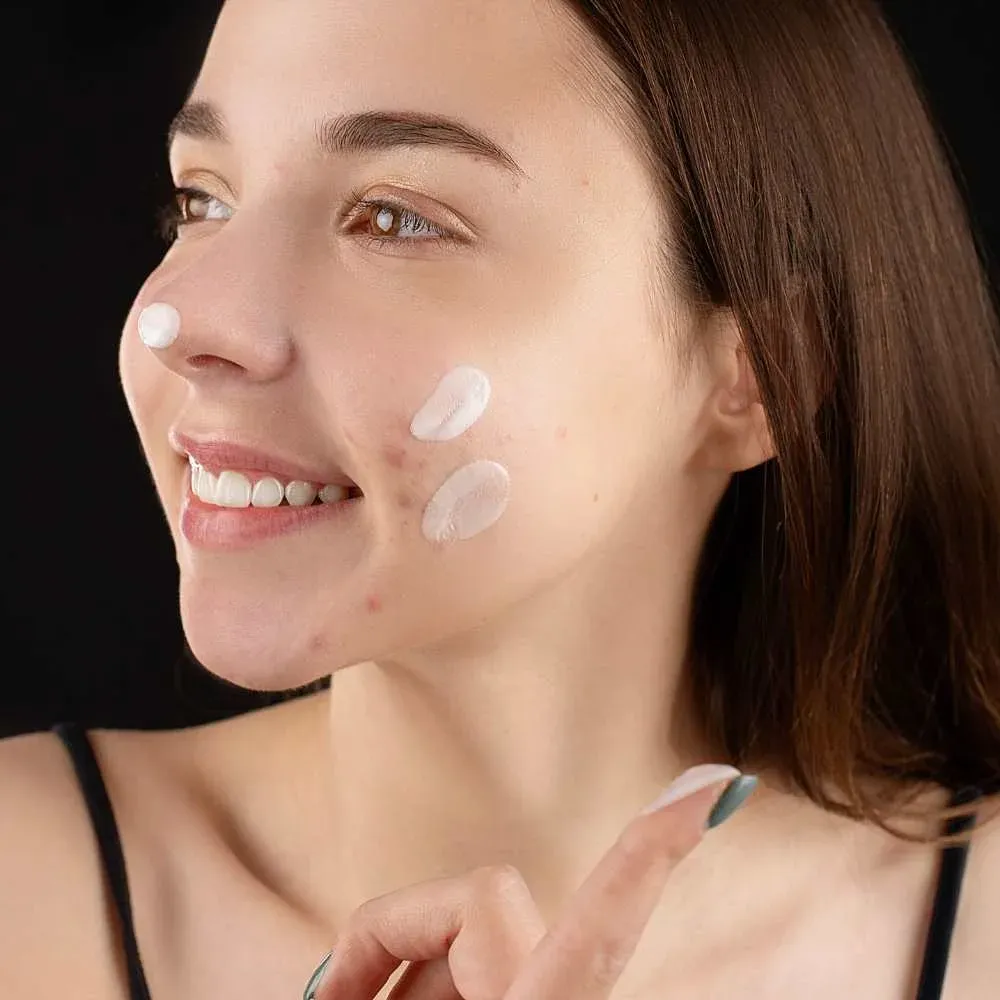
Understanding Acne-Prone Skin
Acne-prone skin is a term that's used to describe a type of skin that's easily susceptible to breakouts and acne. People with this skin type often experience frequent pimples, blackheads, whiteheads, and even cystic acne. While acne-prone skin can be frustrating, understanding the root causes and triggers can help you take better care of your skin and manage breakouts effectively.
The first step in understanding acne-prone skin is to recognize that everyone's skin is different. Various factors, such as genetics, hormones, and lifestyle choices, play a role in the development of acne. For example, some people might have a genetic predisposition to acne, while others may experience breakouts due to hormonal fluctuations during their menstrual cycle or because of stress.
Another important aspect of acne-prone skin is identifying your specific skin type. There are generally four main skin types: normal, oily, dry, and combination. People with oily skin tend to produce more sebum (oil), which can clog pores and lead to acne. On the other hand, those with dry skin might experience acne caused by irritation from harsh skincare products. Combination skin, as the name suggests, is a mix of both oily and dry areas, which can make finding the right skincare routine a bit more challenging.
Understanding acne-prone skin also involves becoming familiar with the common triggers for breakouts. Some of these triggers include:
- Using pore-clogging skincare or makeup products
- Not washing your face regularly or properly
- Over-exfoliating or using harsh scrubs
- Exposure to environmental pollutants
- Hormonal imbalances
- Stress and poor diet
By recognizing these triggers and making necessary adjustments to your skincare routine and lifestyle, you can better manage acne-prone skin and reduce the frequency of breakouts. In the following sections, we'll dive deeper into essential steps and products for taking care of acne-prone skin.
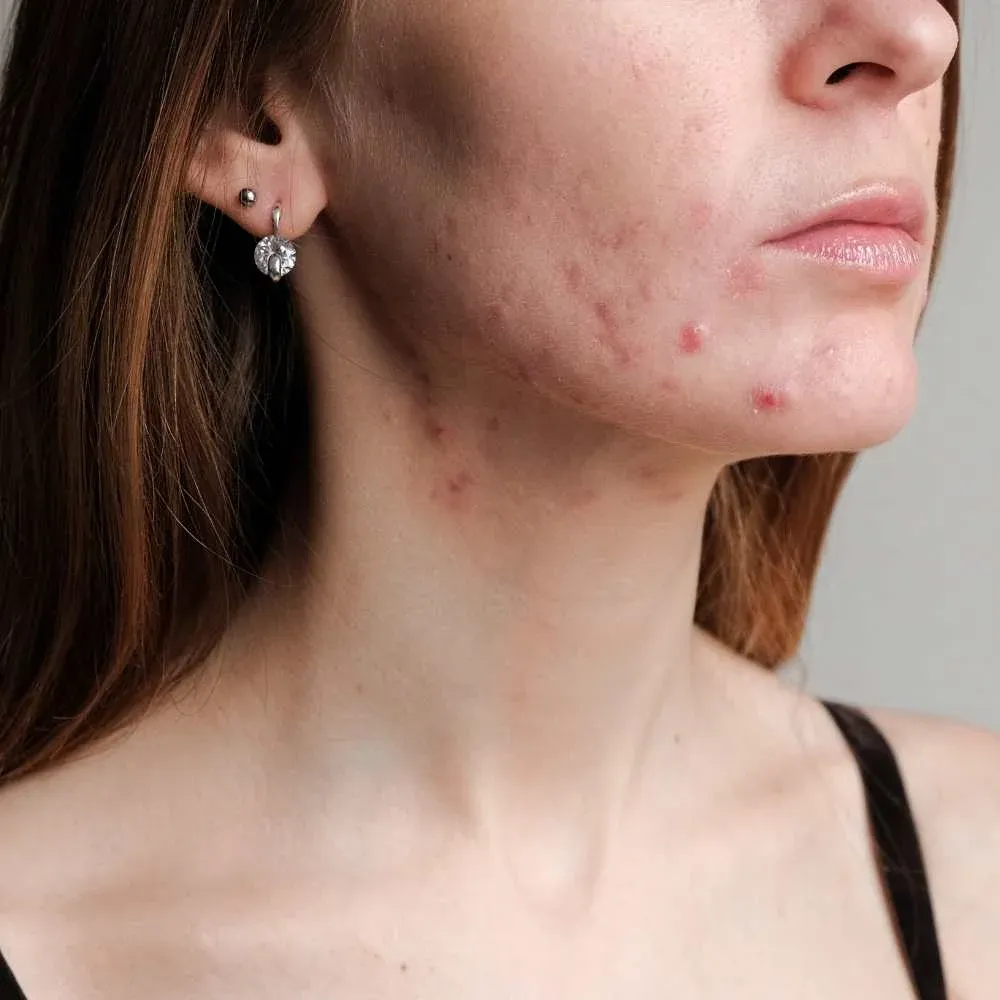
Identifying Your Skin Type and Specific Acne Concerns
When dealing with acne-prone skin, it's crucial to identify your skin type and specific acne concerns. By understanding your skin's unique needs, you can tailor your skincare routine to address those concerns effectively. There are four main skin types: normal, oily, dry, and combination. Let's explore each of these in more detail to help you determine which category you fall into.
Oily Skin
Oily skin is characterized by an overproduction of sebum, which can lead to clogged pores and acne breakouts. If you notice that your face tends to have a shiny appearance throughout the day or that your makeup doesn't last long because of excess oil, you likely have oily skin. People with this skin type should focus on using oil-free, non-comedogenic products to help keep their skin balanced and prevent breakouts.
Dry Skin
Dry skin often feels tight and may have flaky patches or rough texture. This skin type can be prone to acne caused by irritation from harsh skincare products or over-exfoliation. Those with dry, acne-prone skin should look for gentle, hydrating products that won't strip their skin of its natural oils, leading to further irritation and breakouts.
Combination Skin
Combination skin is a mix of both oily and dry areas. Typically, the T-zone (forehead, nose, and chin) is oily, while the cheeks and other areas may be dry or normal. People with combination skin can find it challenging to manage acne breakouts, as they need to address both the oily and dry aspects of their skin. The key is to strike a balance between controlling oil production in the T-zone and providing adequate hydration to the drier areas.
Normal Skin
Normal skin is neither too oily nor too dry. It's typically well-balanced and doesn't have many blemishes or acne breakouts. However, even those with normal skin can experience occasional acne breakouts due to external factors or hormonal changes. Maintaining a consistent skincare routine and being mindful of potential triggers can help minimize breakouts for people with normal skin.
Once you've identified your skin type, it's essential to determine your specific acne concerns. Some common acne issues include:
- Whiteheads: Closed, clogged pores that appear as small, white bumps on the skin
- Blackheads: Open, clogged pores that turn black due to oxidation when exposed to air
- Papules: Small, red, inflamed bumps that may be tender to the touch
- Pustules: Inflamed, pus-filled bumps that often have a yellow or white head
- Cysts: Large, painful bumps under the skin that can lead to scarring
By pinpointing both your skin type and specific acne concerns, you can choose the right products and treatments to effectively manage your acne-prone skin.
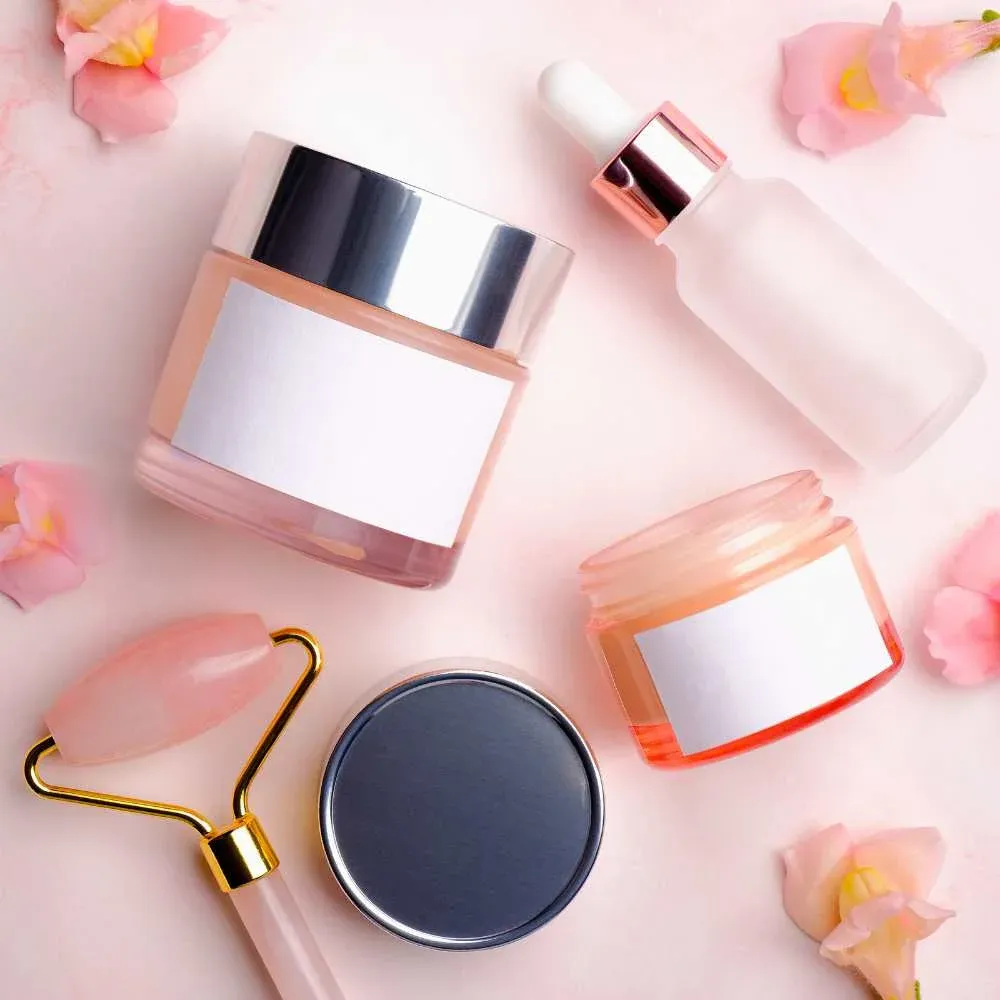
Essential Steps in an Acne-Prone Skincare Routine
An effective skincare routine is crucial for managing acne-prone skin and preventing breakouts. By following a few essential steps and using the right products, you can keep your skin clear and healthy. Here are the key steps to include in your acne-prone skincare routine:
Step 1: Cleansing
Cleansing is the foundation of any skincare routine, especially for those with acne-prone skin. It's vital to remove dirt, oil, makeup, and other impurities from your skin to prevent clogged pores and breakouts. Opt for a gentle, sulfate-free cleanser that won't strip your skin of its natural oils. Make sure to cleanse your face twice a day – in the morning and at night – to keep your skin clean and fresh.
Step 2: Toning
Toning helps to balance your skin's pH levels and prepares it for the next steps in your skincare routine. Look for an alcohol-free toner that contains ingredients like witch hazel, glycolic acid, or salicylic acid, which can help control oil production and exfoliate the skin gently. Apply the toner using a cotton pad or your fingertips after cleansing.
Step 3: Treating
If you have specific acne concerns, such as whiteheads, blackheads, or cystic acne, you'll want to incorporate targeted treatments into your routine. Look for products containing acne-fighting ingredients like benzoyl peroxide, salicylic acid, or retinol. These ingredients can help reduce inflammation, unclog pores, and promote skin cell turnover. Apply the treatment only to the affected areas, and be sure to follow the product's instructions for use.
Step 4: Moisturizing
Moisturizing is essential for all skin types, even for those with oily, acne-prone skin. Hydration helps to maintain your skin's barrier function, which can prevent irritation and breakouts. Choose a lightweight, oil-free moisturizer that's labeled as non-comedogenic, meaning it won't clog your pores. Apply the moisturizer to your face and neck after treating any acne concerns.
Step 5: Sun Protection
Sun protection is a must for everyone, including those with acne-prone skin. Exposure to the sun's harmful UV rays can cause skin damage, premature aging, and even make your acne worse. Opt for a broad-spectrum sunscreen with an SPF of at least 30, and make sure it's labeled as non-comedogenic or suitable for acne-prone skin. Apply sunscreen every day, even on cloudy days, and reapply every two hours if you're spending time outdoors.
By following these essential steps in your acne-prone skincare routine, you can manage breakouts effectively and maintain clear, healthy skin. Remember that consistency is key – stick to your routine and give your skin time to adjust to new products. With patience and persistence, you'll see improvements in your acne-prone skin over time.
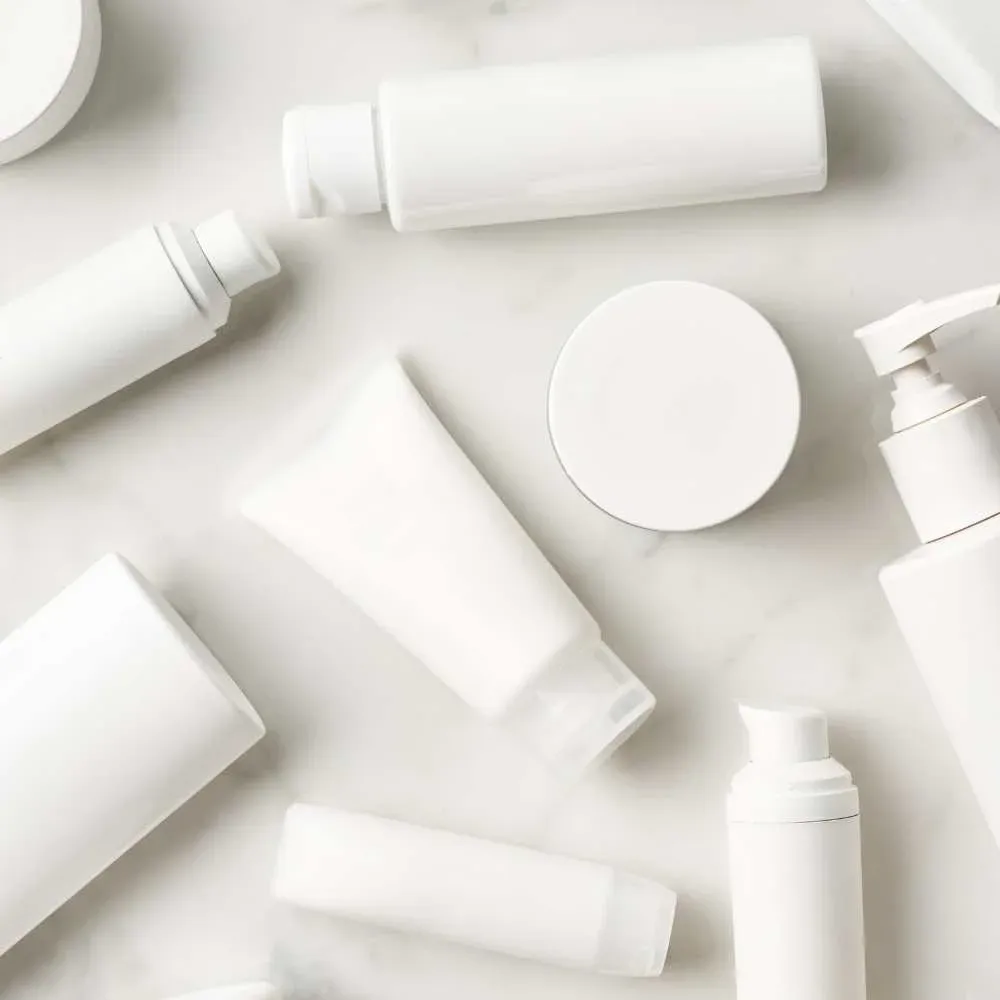
Tips on How to Look After Your Skin
Did you know that acne is like the uninvited party guest of skin issues in the US? That's right – it crashes the scene for a staggering 50 million people every single year. And while those annoying little breakouts love to make their grand entrance during our teenage years, they can sneak in at any age. So, if you're tussling with acne-prone skin, fear not – you've got plenty of company!
We've got some super fun tips to help you pamper that pretty face of yours, even when those pesky pimples try to steal the spotlight. So, if you're wrestling with acne, let's show it who's boss and give your skin the TLC it deserves! Ready to get your glow on? Let's do this!
Cleanse Gently and Often
Got acne-prone skin? No problem! Let's talk about the star of your skincare routine – cleansing. Remember, it's all about being gentle and consistent. So, give your gorgeous face a tender touch by cleansing twice a day with a mild cleanser.
Steer clear of those harsh scrubs or soaps that strip away your skin's natural oils and throw an acne party on your face. Instead, choose a gentle cleanser that'll kick dirt and oil to the curb without leaving your skin high and dry. Happy cleansing!
Exfoliate Regularly
Let's talk about a skincare step that'll make your acne-prone skin sing – exfoliating! It's super important for all skin types, but it's like the fairy godmother of acne-prone skin. Those pesky dead skin cells love to clog pores and throw breakout bashes, so let's show them the door!
Find an exfoliator with tiny beads or granules for a gentle touch that won't ruffle your skin's feathers. To keep your skin looking fresh and fabulous, make exfoliating a date two or three times a week. Happy scrubbing!
Use Non-Comedogenic Products
Let's talk about a super important word: non-comedogenic. It's like the secret password for products that won't clog your pores and crash your skin party with breakouts.
Skincare and makeup products can sometimes be sneaky and contain comedogenic ingredients, so channel your inner detective and read those labels carefully. Be on the lookout for "non-comedogenic" or "oil-free" written on the packaging – that's your ticket to keeping your pores clear and happy!
Moisturize Daily
Let's chat about a skincare step that might seem a bit surprising for acne-prone skin – moisturizing! You might be thinking, "But my skin is already oily!" Well, here's the deal: stripping your skin of its natural oils can actually make acne throw an even bigger party on your face.
So, let's outsmart those pesky pimples by choosing a light, non-greasy moisturizer that'll hydrate your skin without clogging your pores. Make it a daily ritual to apply this magical potion every morning after cleansing and touch up throughout the day as needed. Voilà – hydrated, happy skin!
Perfect Primer
When you're rocking acne-prone skin, finding the perfect primer is like discovering a hidden treasure. A great primer smooths out your complexion minimizes blemish visibility, and acts like a protective shield between your skin and other makeup products. But with so many primers claiming to be acne's BFF, how do you know which one's really got your back?
Fear not, darling! Here are some clues to help you solve the primer puzzle: check the ingredients, feel the texture, and see how well it controls oil levels. It's all about trial and error, so channel your inner makeup artist and experiment until you discover the primer that makes your skin say, "Oh, yes!" With a sprinkle of patience and a dash of persistence, you'll be the master of your acne-prone skin in no time!
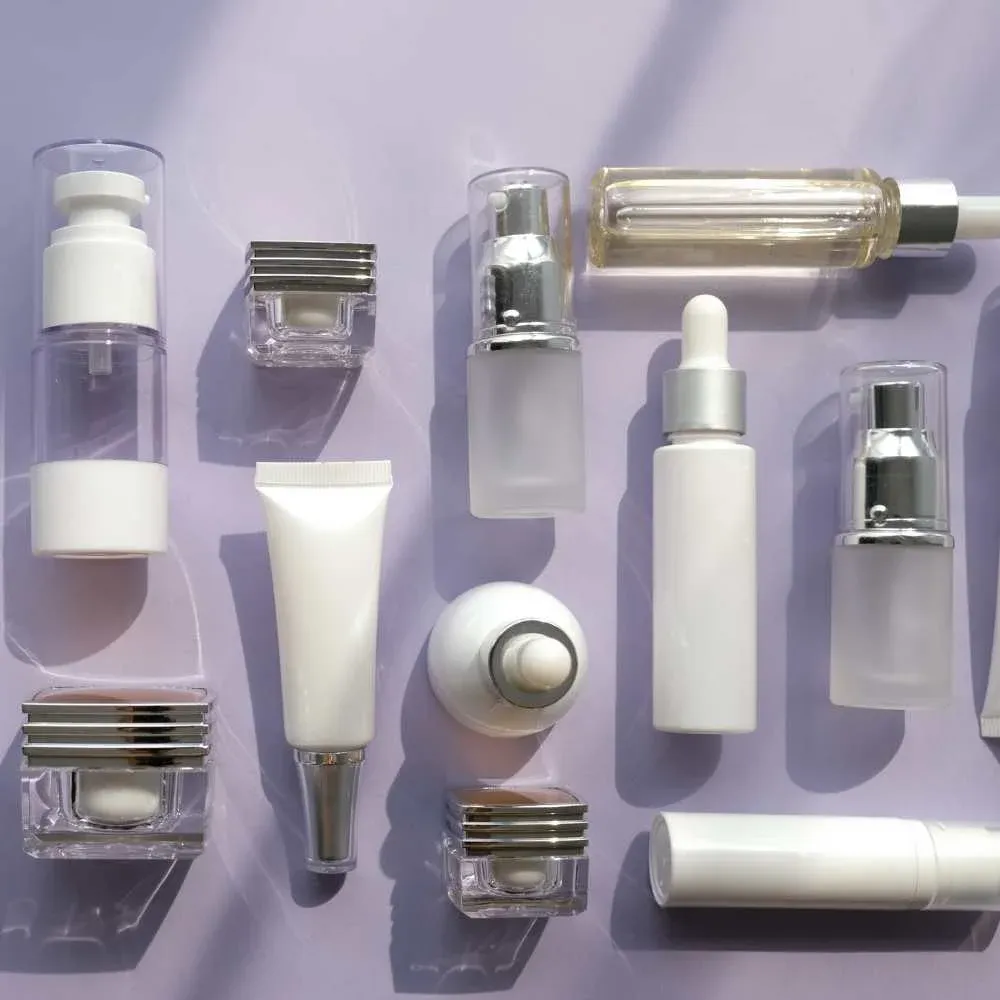
Selecting Suitable Skincare Products for Acne-Prone Skin
Choosing the right skincare products is essential for managing acne-prone skin and preventing breakouts. With countless products on the market, it can be overwhelming to determine which ones are best suited for your skin type and specific acne concerns. Here are some tips to help you select suitable skincare products for acne-prone skin:
Look for Non-Comedogenic Products
Non-comedogenic products are specifically designed not to clog pores, making them ideal for acne-prone skin. Clogged pores can lead to breakouts, so opting for non-comedogenic cleansers, moisturizers, and makeup products can significantly reduce the risk of developing new acne.
Seek Out Oil-Free Formulations
Oil-free products are generally lighter in texture and less likely to contribute to excess oil production on your skin. This is particularly important for those with oily or combination skin types. Look for oil-free labels on cleansers, moisturizers, and sunscreens to ensure they won't exacerbate your acne-prone skin.
Choose Gentle Exfoliants
Exfoliation is crucial for removing dead skin cells and unclogging pores, but using harsh scrubs or over-exfoliating can irritate your skin and worsen acne. Opt for gentle chemical exfoliants, such as alpha-hydroxy acids (AHAs) or beta-hydroxy acids (BHAs), which can effectively exfoliate the skin without causing irritation. Use exfoliants sparingly, following the product's instructions, to avoid over-exfoliation.
Prioritize Acne-Fighting Ingredients
Look for products that contain acne-fighting ingredients, such as salicylic acid, benzoyl peroxide, or retinol. These ingredients can help reduce inflammation, unclog pores, and promote skin cell turnover, making them effective in treating existing acne and preventing future breakouts.
Consider Your Skin Type
As mentioned earlier, identifying your skin type (oily, dry, combination, or normal) is crucial in selecting suitable skincare products. For example, if you have oily skin, you'll want to look for lightweight, oil-free formulations, while those with dry skin should prioritize hydrating and moisturizing products.
Read Product Reviews and Testimonials
Doing some research on the products you're considering can be beneficial in finding the best options for your acne-prone skin. Read product reviews and testimonials from other people with similar skin concerns to see how well the product has worked for them. Keep in mind that everyone's skin is different, so what works for one person might not work for another. However, gathering information from others can help you make more informed decisions when selecting skincare products.
By considering these factors and being mindful of the ingredients and formulations you choose, you can effectively select suitable skincare products for your acne-prone skin. Remember, it's essential to be patient and consistent with your skincare routine to see improvements over time.
In summary, dealing with acne-prone skin can be challenging, but by understanding your skin type, identifying specific acne concerns, and following a consistent skincare routine, you can effectively manage breakouts and achieve a clearer complexion. It's crucial to select suitable skincare products that cater to your unique needs and incorporate acne-fighting ingredients to target existing breakouts and prevent future ones. Remember, patience and persistence are key when it comes to tackling acne-prone skin. With the right approach, you'll be well on your way to healthier, more radiant skin.
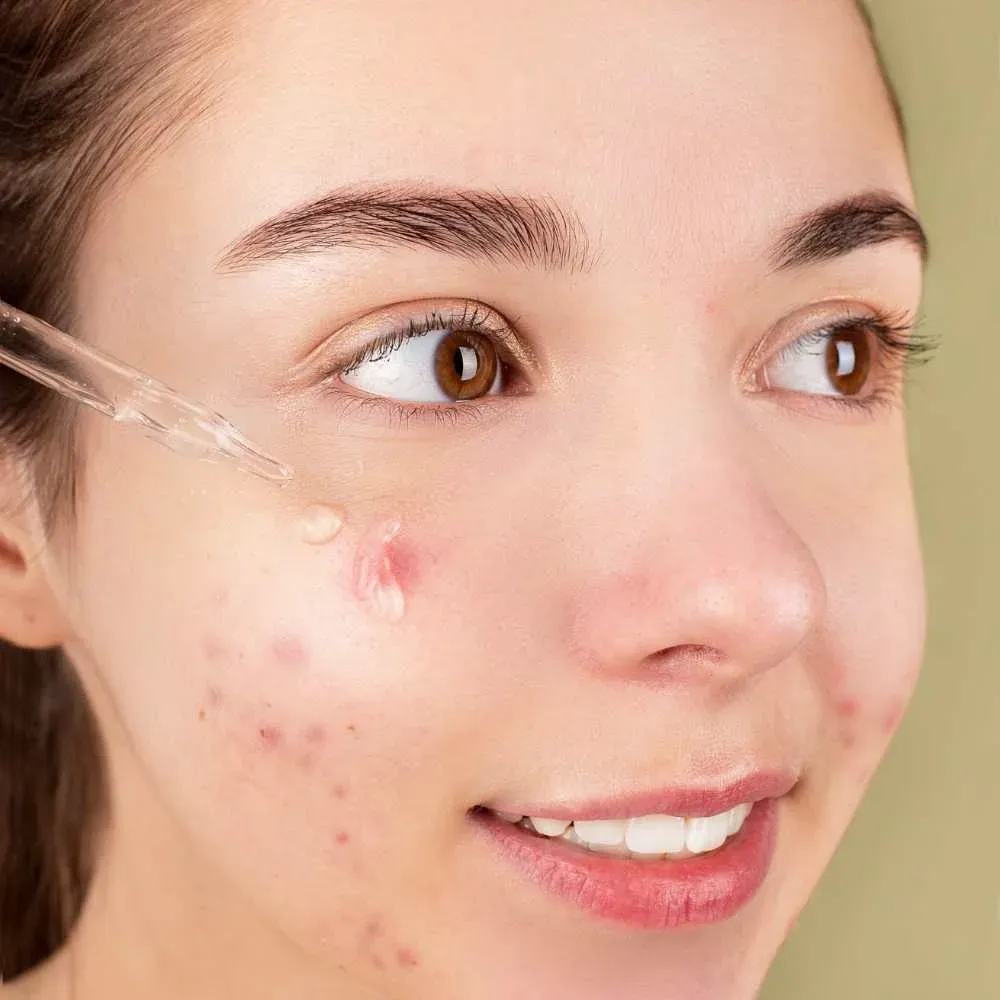
FAQs About Caring for Acne-Prone Skin
How can I take care of my acne-prone skin?
To keep those pesky pimples at bay, start by gently cleansing your face twice daily with a mild cleanser. Steer clear of harsh scrubs and soaps, as they can make acne worse. Next, exfoliate two to three times a week to sweep away dead skin cells that love to clog pores. Embrace non-comedogenic (a.k.a. non-pore-clogging) products for both skincare and makeup, and always read labels to ensure they're oil-free. Moisturize daily with a lightweight, non-greasy formula to keep your skin happily hydrated without inviting more breakouts. And finally, experiment with primers to find the perfect one that smooths your complexion and controls oil levels. With these fun steps in your skincare dance, you'll soon be twirling your way to clearer, more radiant skin!
What not to do with acne-prone skin?
First, avoid over-washing or using harsh scrubs, as they can strip your skin of its natural oils and invite more breakouts. Resist the temptation to pop or squeeze pimples, as this can lead to scarring or infection (yikes!). Steer clear of heavy, pore-clogging makeup, and always read labels to ensure your products are non-comedogenic and oil-free. Don't forget to remove makeup before bedtime – let your skin breathe and rejuvenate while you catch those Z's. Lastly, avoid touching your face throughout the day, as your hands can transfer dirt and bacteria that love to throw a pimple party on your skin. Stick to these "don'ts" in your skincare journey, and your acne-prone skin will thank you with a radiant glow!
What triggers bad acne?
First up, hormones – those pesky little chemical messengers can wreak havoc on your skin, especially during puberty or right before Aunt Flo comes to visit. Next, stress can invite more pimples to the party, so take a deep breath and find ways to relax (think bubble baths or yoga sessions). Be mindful of your diet, as certain foods like dairy and high-glycemic grub can sometimes cause breakouts. Don't forget to check your skincare and makeup products – make sure they're non-comedogenic and oil-free to avoid clogging pores. Environmental factors like pollution and humidity can also contribute to bad acne. And finally, resist the urge to touch your face throughout the day, as you might unknowingly transfer dirt and bacteria. Keep an eye on these tricky acne triggers, and you'll be well on your way to mastering the art of clear, glowing skin!
How can I clear my skin?
To achieve that radiant, blemish-free complexion, start by gently cleansing your face twice daily with a mild cleanser designed for your skin type. Exfoliate two to three times a week to sweep away dead skin cells and keep those pores unclogged. Don't forget to moisturize with a lightweight, non-greasy formula, even if you have oily skin (trust us, it helps!). Embrace non-comedogenic and oil-free products for both skincare and makeup, to avoid pore-clogging surprises. Make sunscreen your BFF – not only does it protect against sun damage, but it also helps prevent post-acne dark spots. Manage stress through self-care practices like meditation or exercise, as stress can contribute to breakouts. Keep an eye on your diet, and consider reducing dairy and high-glycemic foods if you notice a connection to your skin issues. Follow these fabulous steps consistently, and you'll be well on your way to flaunting a clear, glowing complexion!
How do you treat acne-prone skin?
First, cleanse gently using a mild cleanser specifically designed for acne-prone skin – twice daily is the sweet spot. Incorporate an exfoliating step two to three times a week to wave goodbye to pore-clogging dead skin cells. Seek out over-the-counter treatments containing acne-fighting ingredients like salicylic acid, benzoyl peroxide, or glycolic acid – but remember, a little goes a long way! Keep your skin happily hydrated with a lightweight, non-greasy moisturizer, and always opt for non-comedogenic and oil-free products. Don't shy away from consulting a dermatologist if your acne persists or worsens – they're the skin gurus who can help tailor a treatment plan just for you. Consistency is key, so stick to your routine, and your acne-prone skin will soon be on its way to becoming clear, healthy, and radiant!
How can I prevent acne naturally?
Start by sipping on water throughout the day to stay hydrated and help flush out toxins (bonus: it's great for overall health too!). Incorporate a well-balanced diet filled with fresh fruits, veggies, whole grains, and lean proteins – your skin will thank you with a gorgeous glow. Get moving with regular exercise to boost circulation and reduce stress, but don't forget to shower afterward to wash away sweat and bacteria. Speaking of stress, find ways to unwind and relax, as stress can be an acne trigger – think meditation, yoga, or simply curling up with a good book. Make sure to catch enough Z's each night, allowing your skin to repair and rejuvenate while you snooze. And finally, consider trying natural remedies like tea tree oil or green tea extract, which have antimicrobial and anti-inflammatory properties. With these natural acne-fighting tips in your arsenal, you'll be well on your way to a clear, radiant complexion!
Read our article about best foundation for acne scars here!
Read our article about best cruelty free lipstick here!
Read our article about best deodorant for kids here!
Read our article about best hair brush for fine hair here!







